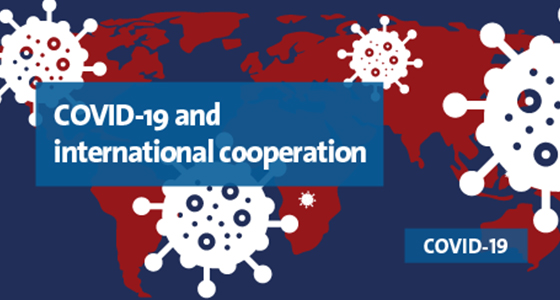With the spread of the novel coronavirus and the increasing number of cases and deaths, almost no community or country can resist this rapidly evolving threat. Dramatically limit the spread of COVID-19, take care of the sick, prevent deaths, reduce social and economic damage, and meet basic human needs. All classes of our society are taking urgent actions. Uncertainty is imminent, and we need to do a lot of things.
Covid-19 Has Risen the Need for Global Coordination of Healthcare
A collaborative, science-based coordinated and transparent global response is required to contain and respond to this pandemic. All countries are concerned about the severe threats and risks faced, especially developing countries and the underdeveloped, conflict-affected countries, and post-conflict countries with insufficient medical systems. The urgency of international cooperation must be emphasized in several ways:
International communication
A fast, accurate and transparent international exchange on the epidemics of this new viral disease is needed. It includes the duration of incubation, the mode of transmission, and the lethality and effectiveness of the various intervention methods.
Sharing of information
Coordination activities to share real-time detailed scientific information on viruses, the pathophysiology of the diseases, cause and the regulation of their origin, human immune responses, heredity, and mutations, and to improve knowledge in all these areas. Countries must share information on the research and development of medical products used to treat diseases and conduct joint research.
Availability of standard products
To accelerate the availability of safe personal protective equipment, diagnostic test equipment and medical functions, mutual trust, coordination between regulatory and manufacturing processes is required.
Coordinated analysis and public awareness
Work together to conduct a quick but evidence-based analysis of new issues or precise planning and policy issues that may arise with the global epidemic’s development. Coordinate and develop authentic guidelines, communications, and information for the public and decision-makers in rapidly changing conditions.
How will respective policies change the national healthcare systems?
For the first time in history, the health crisis shut down the entire world economy and harshly proved that health and economy were inseparable. On a global scale, our healthcare system is not designed to address this crisis. It is an unpredictable and large-scale health challenge that requires an urgent mobilization of resources and affects the entire population. Therefore, it is not important to discuss the functionality and efficiency of these systems. In many respects, the pandemic is the opposite of what the medical system (mostly developed countries) has taken in recent years like:
- Focus resources on non-communicable, diseases such as diabetes and cardiovascular conditions.
- Limit investment in overall prevention.
- Drive efficiency, moving care from hospital to outpatient environments.
- Incentivize innovation for smaller unmet needs, increasing relative focus and spending on Specialty Care.
We need to divert our health system from the typical working structure.
Conclusion
Despite the desire to return to a “normal” life, COVID-19 continues to shape the next normal life. Healthcare stakeholders can first prioritize emergencies related to delayed care, such as heart disease and cancer. However, it is recognized that the full health impact of COVID-19 may be unclear in the next few years, so the need to manage this system requires a robust structure to address behavioral health issues.




